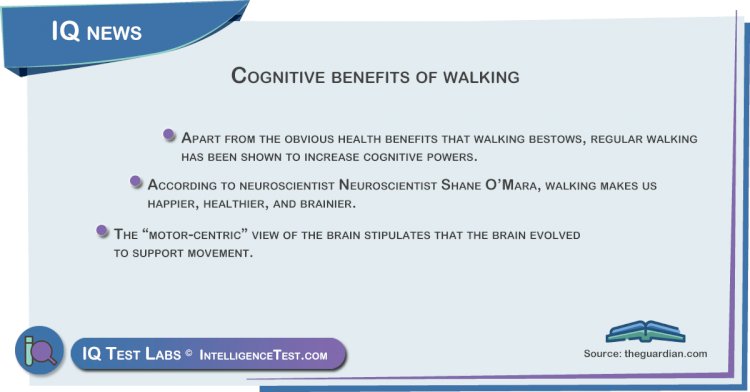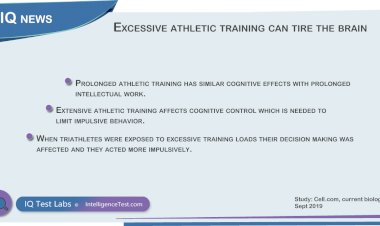Cognitive benefits of walking
Apart from the obvious health benefits that walking bestows, regular walking has been shown to increase cognitive powers.

by Amy Fleming, Guardian.com
Main titles
- According to neuroscientist Neuroscientist Shane O’Mara, walking makes us happier, healthier, and brainier.
- Shane's new book, Praise of Walking, is an account of what happens in our brains when we perambulate.
- The “motor-centric” view of the brain stipulates that the brain evolved to support movement.
- Examples of this hypothesis in the animal world: The sea squirt during its larval stage has a basic brain that helps it find food whilst swimming; at later stages it clings to rocks and loses that brain. Conversely, some jellyfish start out as brainless polyps on rocks, and later develop nerves that have some similarity to a brain later on when they start to swim.
“Our sensory systems work at their best when they’re moving about the world,” - Neuroscientist Shane O’Mara.
- People who do more walking have been shown to exhibit more positive traits such as extraversion and openess to experience. Walking also sets the stage for successful creative activity.
“It turns out that the brain systems that support learning, memory and cognition are the same ones that are very badly affected by stress and depression,” - Neuroscientist Shane O’Mara
"One of the great overlooked superpowers we have is that, when we get up and walk, our senses are sharpened. Rhythms that would previously be quiet suddenly come to life, and the way our brain interacts with our body changes.”
- Theta brainwaves is a pulse which is beneficial to learning and memory and becomes pervasive throughout the brain during movement; spatial abilities are enhanced the more we move and exercise.
"What we need to be is much more generally active over the course of the day than we are. What you see if you get people to wear activity monitors is that because they engage in an hour of really intense activity, they engage in much less activity afterwards.” - Neuroscientist Shane O’Mara
- To get the maximum health benefits, Shane recommends that:
“speed should be consistently high over a reasonable distance – say consistently over 5km/h, sustained for at least 30 minutes, at least four or five times a week.”
- Finally asked about over-reliance on GPS:
"There is no data of any quality showing that, over the long term, reliance on GPS is a bad thing. Honestly, the brain is much more robust.” - Neuroscientist Shane O’Mara
Source: theguardian.com
















